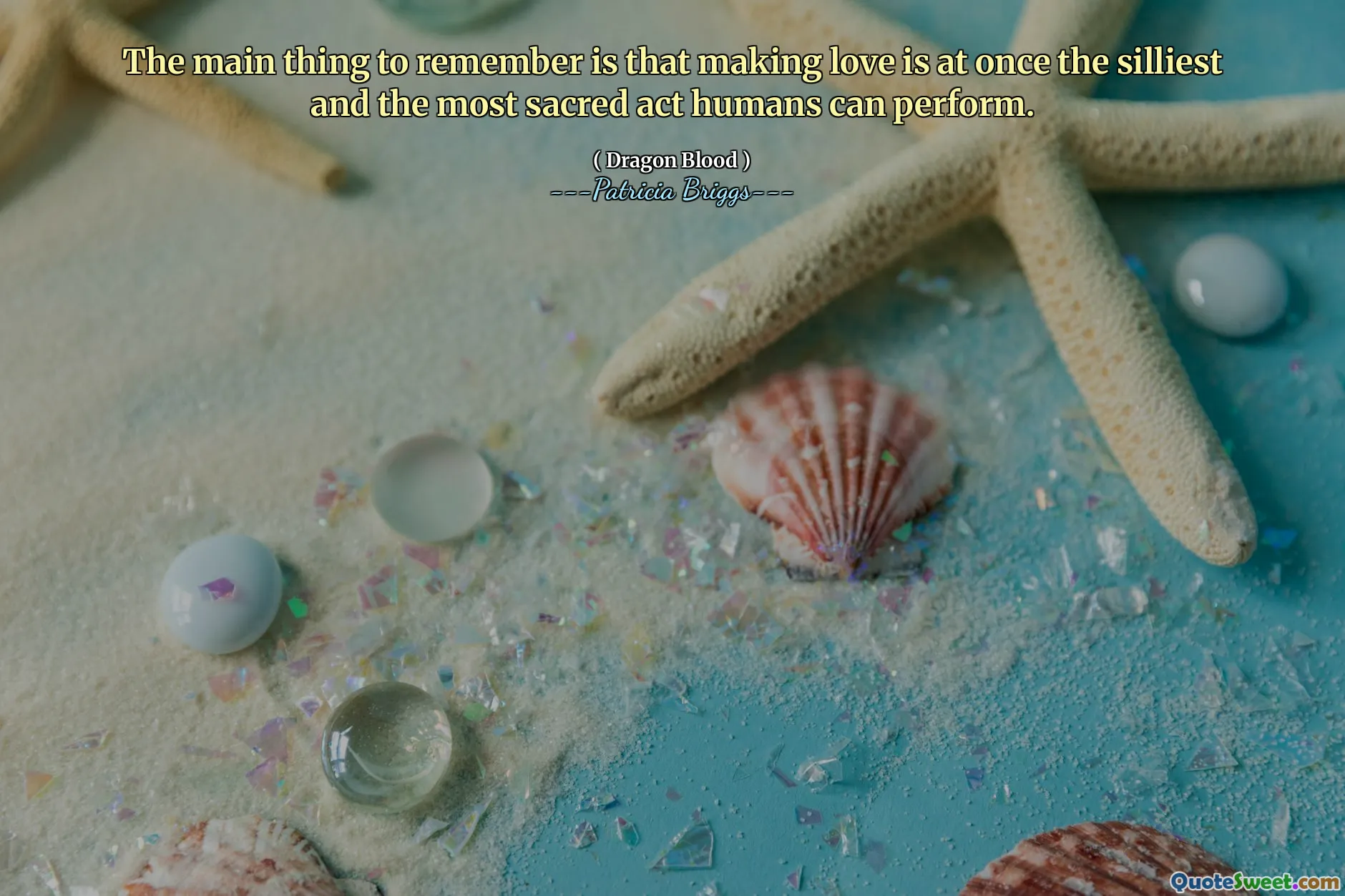
The main thing to remember is that making love is at once the silliest and the most sacred act humans can perform.
This quote highlights the duality inherent in the act of making love. On one hand, it can be perceived as silly or humorous, perhaps because of the vulnerability and rawness involved or the societal perceptions that sometimes diminish its profundity. On the other hand, it is described as the most sacred act, emphasizing its deep spiritual and intimate significance. This juxtaposition invites us to reconsider how we view love and intimacy — as something that is both lighthearted and profoundly meaningful. In contemplating this, it's clear that our cultural narratives often oscillate between trivializing and elevating love. Recognizing the sacredness of making love encourages us to approach intimacy with respect, reverence, and mindfulness, elevating it from mere physicality to a meaningful exchange of soul and spirit. Similarly, acknowledging its silliness reminds us not to take ourselves too seriously and to appreciate the joy, spontaneity, and human fragility involved. It reminds us that love encompasses the full spectrum of human experience — from laughter and foolishness to profound connection and reverence. This holistic view ultimately highlights that love is neither solely sacred nor silly but a blend of both, shaping our human existence in unique and beautiful ways, reinforcing the importance of embracing all aspects of intimacy without shame or apathy.






